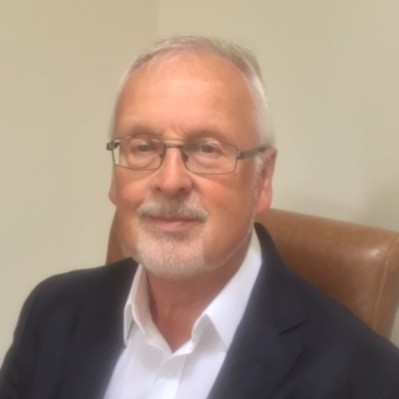Asbestos • 4 mins read
As UKAS celebrates 30 years as the UK’s National Accreditation Body, we are proud to highlight the contributions of Gerald Hudd—an experienced professional in asbestos and radiation monitoring who has dedicated 25 years as a contracted technical assessor. Now stepping back from regular assessment work, Gerald continues to contribute his expertise through his role on the UKAS Technical Advisory Committee (TAC) for Asbestos.
From Chernobyl to contracted assessor
Gerald’s journey with UKAS began long before he formally joined as a technical assessor in 1999. His first involvement dates back to 1986, when he worked at Somerset County Council and collaborated with UKAS (then NAMAS) to support radiation monitoring in the aftermath of the Chernobyl disaster. That early experience laid the groundwork for his later focus on asbestos management—a discipline he was originally told would be resolved “in a few years,” but which became a defining part of his career.
Over two decades, Gerald expanded the Council’s asbestos team, taking a lead role in establishing rigorous procedures and maintaining early voluntary UKAS accreditation for asbestos testing, well before it became mandatory. As the need for air monitoring and bulk analysis accreditation grew, so did Gerald’s involvement with UKAS. Eventually, he trained as a contracted technical assessor, and by 2010, he was working regularly with UKAS through his own company, RADPROS Ltd.
A technical role with a human touch
Gerald describes the technical assessor role as a “deeply rewarding” part of his career. His work focused on ensuring organisations met the stringent requirements of ISO/IEC 17025, particularly in high-risk, high-precision areas like asbestos air monitoring and bulk analysis.
Site visits and practical assessments were a key part of the role, allowing Gerald to observe procedures in real-world settings. “The technical side is crucial, but so are people skills,” he explained. “It’s about making people feel comfortable enough to do their work naturally, so you can assess their competence fairly and accurately.”
He also noted that the role often involves challenging situations—from navigating complex documentation like LAB 30 and RG8, to supporting nervous participants during on-site assessments. “It’s not just about ticking boxes. It’s about engaging with people, seeing how systems operate in practice, and ensuring everything is underpinned by a culture of competence.”
Shaping standards through the Technical Advisory Committee
Gerald continues to lend his expertise to UKAS through the Asbestos Technical Advisory Committee (TAC), where he represents the perspective of contracted assessors. He was encouraged to join the group by UKAS colleague Wendy Smith (Head of Healthcare), and values the diverse perspectives it brings together—from UKAS and HSE to external experts.
“The TAC plays a vital role in shaping the policies and procedures that underpin accreditation,” he said. “It’s about ensuring they are not only technically sound but also realistic and reflective of what’s happening on the ground.”
Supporting the next generation of assessors
Although Gerald has stepped back from regular assessments, he remains available to support UKAS with urgent or short-notice work. He is also keen to help identify and encourage new assessors to join the profession.
“This is specialist work, and it needs the right people,” he explained. “You need a well-rounded understanding of the sector, relevant qualifications—like a certificate of competence in asbestos—and strong interpersonal skills. It’s also important to understand the practicalities, like being able to travel and spend time away from home.”
His advice to aspiring technical assessors? “Speak to someone doing the role. Ask questions. Understand what’s involved before committing—but if it suits your skillset, it can be one of the most interesting and rewarding roles out there.”
The value of accreditation—and a look to the future
Looking ahead, Gerald sees significant value in the continued expansion of accreditation in the asbestos sector. He believes that making accreditation mandatory for asbestos surveying—currently only recommended—would lead to more consistent standards across the industry.
“The difference between accredited and non-accredited organisations is clear,” he said. “Accredited bodies have to follow defined procedures, demonstrate technical competence, and undergo regular assessment. That kind of oversight helps raise the bar across the board.”
As UKAS celebrates three decades of setting and maintaining those high standards, Gerald’s story is a powerful reminder of the expertise and dedication that underpin the accreditation system—and of the vital role that technical assessors play in protecting health, safety, and quality in high-risk environments like asbestos management.
If you’re interested in working with UKAS as a technical assessor, please contact [email protected] to find out more.
